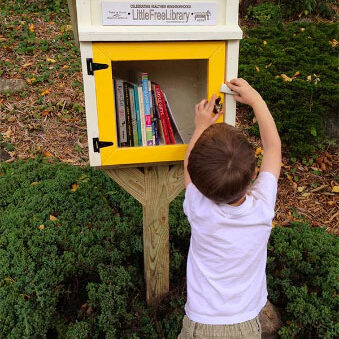Surviving: Visual Poetry Anthology by Madison Cowles Serna
Madison Cowles Serna earned her Master of Fine Arts in Art Studio from the University of Kentucky and her Bachelor of Fine Arts from the University of Texas at San Antonio. She has used her skills as an artist and her experience as a survivor of intimate partner violence to create Surviving: Visual Poetry Anthology, a gift not only for those who are in the process of mental and emotional healing post-assault but an important guide for anyone supporting a survivor.
I had never heard of visual poetry before receiving Surviving in a Goodreads Giveaway. I have since learned that the formal elements of visual poetry may vary with individual artists. Madison Cowles Serna’s is a combination of language and pictorial elements. For instance, Outlast, my favorite piece, “contains images appropriated from 2016 protests and passages from anonymous individuals on the internet recounting their experiences with assault.” On page thirty-eight (Kindle version), the power of visual poetry is stunning as the author makes us aware of the sheer number of sexual assaults occurring every day.
The original format of each poem is listed as a Risograph book, another term with which I was unfamiliar. Google ‘Risograph’ and you will find that ‘Risograph’ aka ‘RISO printing’ is “a high-speed, photocopier meets mimeograph printing system, named after the manufacturer, Riso Kagaku Corp. This piece of machinery was produced for high volume copying and printing back in mid 1980s. It can duplicate prints from the built-in scanning bed, but also has the ability to be used as network printer, which is very appealing to designers and illustrators when producing editions or self-published comics, zines and books.”
The themes and lessons of this beautiful, honest, and essential work of art emerge from the culture of gender-based violence and misogyny that devalues women; normalizes or minimizes abuse; ignores sexism; promotes aggressive or even toxic masculinity; and uses men’s achievements to exonerate, excuse, and/or deny the impact of their behavior. For the author, this culture was alive and thriving in an academic environment where she was just starting to understand herself, where one would hope she would find support not only in her intellectual development but also in her emotional and psychological growth.
Though her art, Madison Cowles Serna reminds us that it is ‘rape culture’ that gives birth to the myths that the more charming someone is, the kinder and safer they are; that an individual who behaves appropriately with some will then behave appropriately with all; that if you are assaulted, it’s your fault, that you somehow asked for it. It minimizes the trauma, anxiety, and dread following an assault and perpetuates demeaning, sexist, and racist language, and actions. It refuses to recognize that verbal sexual harassment, whether voiced crudely and loudly in bar or subtly in an everyday situation, is a form of violence–one that leaves no visible marks but can make its victims feel unable to move freely and casually in society.
Another myth that has been perpetuated in our culture that relates directly to intimate partner violence is that sexual assault occurs at wild parties, bars, or in dark alleys and that the attacker is an “other,” someone who is a stranger and not from your community. Not so. The poem “In the Quiet” reminds us that sexual assault can occur in a home, a bedroom, or a car, and is often perpetrated by someone you love and trust. “Intimate partner violence is even more common than violence from strangers.” Throughout Survivor, the author stresses that these myths make it painfully difficult for the abused to tell others what has happened and for others to believe them. And that is the vital element to healing: to be heard and believed.
The following quote is taken from valuable information offered at the end of the book from a life-saving website.
How to be an Ally:
Educate yourself about sexual and intimate partner violence, and begin to understand the impact that it has on the individual, relationship, community, and societal levels. Understand how your experiences, values, and perspectives related to sexual and intimate partner violence are influenced by your own social identity. Intervene in situations that are harmful. Support and believe survivors. Be respectful. Listen. Ask for consent before you hug someone. You could be the first person to ever hear their story and how you react to the situation is very important. Kindle Version, p. 112]
Thank you to Goodreads Giveaways and to Madison Cowles Serna for this much appreciated gift.
















